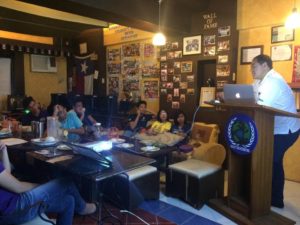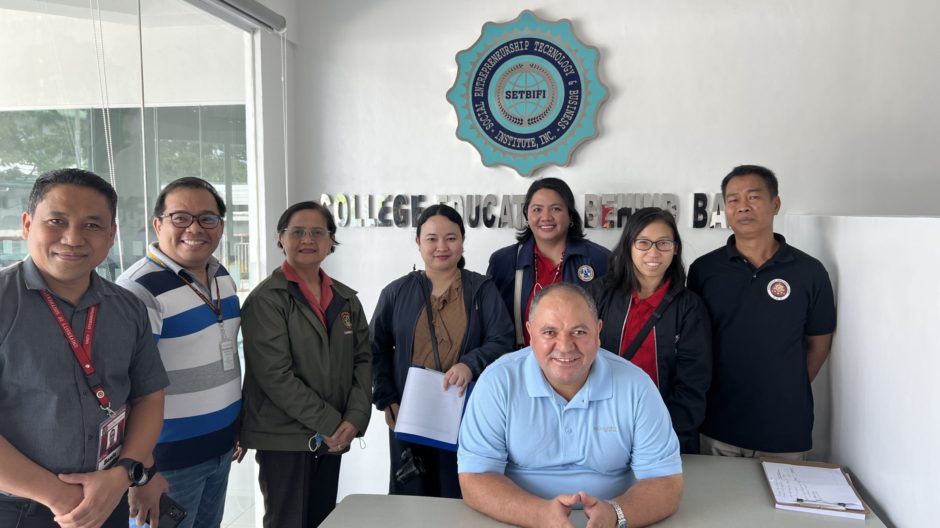 President Rodrigo Duterte lashed out against the European Parliament for demanding that the Philippines stop efforts in Congress to reinstate the death penalty, monitor rights abuses in the country, and call for the immediate release of detained Senator Leila de Lima. On March 19, during a gathering of some of the 1,800 Filipinos residing in Myanmar, President Duterte cursed the critics and admonished them, “Do not impose your culture or your belief in what would be a government in this planet; why don’t you mind your own business?” He rightly criticized the issue of how the West does not seem to respect Asian countries in their decision to continue to impose the death penalty. Currently, the Philippines House of Representatives approved its version of the death penalty bill that allows execution of drug convicts through hanging, firing squad, or lethal injections. The counterpart bill still has to go through Senate. The world struggles to balance the democratic promise of human rights protection against its historically Western identification. Western attitudes toward human rights and the Philippine are riddled with contradictions. The West gives aid to poor countries, but then takes back four times as much in debt repayments through the International Monetary Fund and the World Bank, rather than forgiving the debts. The West protests about Duterte‘s war on drug in a faraway place, ignoring the fact that the weapons used were probably made closer to home. The West talks about eradicating poverty but for more than fifty years has not eliminated it. Western policies regarding human rights are carefully planned and staged, yet are often managed hypocrisy. These policies --and the violations that result from them -- are not charges against President Duterte only but also are official directives “legally” enacted and implemented over centuries. The Universal Declaration of Human Rights has been a great example used to shore up oppression against the developing countries, such as the Philippines and nations in Africa and the Middle East, such as where Western countries bungled affairs in Iraq, Afghanistan, Syria, and Libya.
President Rodrigo Duterte lashed out against the European Parliament for demanding that the Philippines stop efforts in Congress to reinstate the death penalty, monitor rights abuses in the country, and call for the immediate release of detained Senator Leila de Lima. On March 19, during a gathering of some of the 1,800 Filipinos residing in Myanmar, President Duterte cursed the critics and admonished them, “Do not impose your culture or your belief in what would be a government in this planet; why don’t you mind your own business?” He rightly criticized the issue of how the West does not seem to respect Asian countries in their decision to continue to impose the death penalty. Currently, the Philippines House of Representatives approved its version of the death penalty bill that allows execution of drug convicts through hanging, firing squad, or lethal injections. The counterpart bill still has to go through Senate. The world struggles to balance the democratic promise of human rights protection against its historically Western identification. Western attitudes toward human rights and the Philippine are riddled with contradictions. The West gives aid to poor countries, but then takes back four times as much in debt repayments through the International Monetary Fund and the World Bank, rather than forgiving the debts. The West protests about Duterte‘s war on drug in a faraway place, ignoring the fact that the weapons used were probably made closer to home. The West talks about eradicating poverty but for more than fifty years has not eliminated it. Western policies regarding human rights are carefully planned and staged, yet are often managed hypocrisy. These policies --and the violations that result from them -- are not charges against President Duterte only but also are official directives “legally” enacted and implemented over centuries. The Universal Declaration of Human Rights has been a great example used to shore up oppression against the developing countries, such as the Philippines and nations in Africa and the Middle East, such as where Western countries bungled affairs in Iraq, Afghanistan, Syria, and Libya.
This is not to advocate the death penalty, but to address the double standard of the West. For example, other governments, including some states in the United States, practice the death penalty as well.
The Philippines is being criticized, and yet the United States is not. The problem is that the world court of opinion is operating in a domain that is politically and economically unequal.
While turning a blind eye to their own deeply rooted human rights issues, such as a rampant refugee crisis, the rise of far right groups, the treatment of immigrants, and a growing xenophobia; European countries have a double standard concerning human rights, underpinned by a sense of superiority. For example, some EU countries did not allow Turkey to campaign among expatriate Turkish communities ahead of an April 16 referendum in Turkey that would increase Presidential power. Turkish politicians, including the Turkish foreign secretary, were also barred from speaking in the Netherlands on the weekend. Dutch police used tactics against protesters that include dog’s water cannons. The world is watching the graphic images from Rotterdam, where pro-government Dutch Turkish protesters threw bottles and mobbed police vehicles outside the Turkish resulted in the police wielding batons and bringing their attack dogs. In response, President Erdogan spoke at a referendum rally and called the Dutch “Nazi remnants and fascists,” while Prime Minister Binaili Yildirim deemed it “unacceptable treatment” that would result in a strong response from Turkey.
Germany denied a permit for a rally attended by President Erdogan and his government. Following a gathering of 30,00 Turkish Kurds who protested in Frankfurt against Erdogan and his referendum for increased presidential powers, Ilbrahim Kalin, Erdogan’s spokesman, retaliated, “We once again remind European countries: on April 16 the decision is to be made by the (Turkish nation), not Europe.” He charged Germany with being hypocritical for allowing the protest since 1.4 million Turks live in Germany. Reacting to a mostly peaceful demonstration, the mayor of the city urged the police to shoot to kill if protesters do not obey the rules.
The concept of human rights, thus, seems ubiquitous. What has Duterte been saying to the drug dealers all along? If you do not stop the drug trafficking, if you resist the police, and if you do not obey the law, then I will kill you. He ordered the police to kill, so why is there a double standard here then? In the most recent incident, Turkish President Recep Tayyip Erdogan accused the Dutch of being “spineless” during the Bosnian War, arguing that even war has ethics. According to his view, the enemy cannot open fire on medics, unless they are like the Dutch. “We know what the Netherland did during the Srebrenica genocide. We knew how spineless and ignoble they were when they murdered 8000 Bosnians; no one should try to give us lessons in civilization. Their history is dark but ours is clean.” Selective justice is not justice, and justice does not seem to be equally applied around the world. Atrocities in the Kurdish region, Syria, North Korea, Afghanistan, Colombia, and Myanmar, have gone unpunished. Yet, the West tolerates dictators such as Sisi of Egypt who put the democratically elected President in jail. In addition, for the sake of economic investment and cooperation,
Germany put out the red carpet when Sisi visited Germany.
But the victims and perpetrators of Western-style human rights are easy to identify. This is, perhaps, why President Duterte reacts more strongly to the United Nation and the EU Parliament for criticizing him for his war on drugs campaign in the Philippines. To the point, the International Criminal Court (ICC), established as a court of last resort to prosecute grave abuses when countries would not or could not act against those responsible, began hearing cases at The Hague in the Netherlands in 2002. The ICC’s jurisdiction is limited; it can investigate crimes that took place in or where committed by nationals of the 120 countries that ratified its founding treaty, the 1998 Rome Statute. It cannot get involved anywhere else without a referral from the UN Security Council. Since the implementation of the ICC, mostly Africans have been brought to trial. South Africa and Brundi announced that they were leaving the ICC, but the major powers of Russia and China have used their vetoes to prevent the refereeing of the War in Syria, which many countries believe warrants investigation by the Court.
The West should be honest and credible regarding human rights in nations outside the EU; they should also look at their own human rights situation, such as shared responsibility as the way to have healthy and effective globally governance and to help build human rights. However, what we see is rather a double standard in that they politicize human rights, point fingers at others, and even interfere in the other countries’ sovereignty, all in name of human rights. Although the concept of human rights is abstract, how it is applied has a direct and enormous impact on daily life around the world. Millions have suffered crimes against humanity without consequence to the perpetrators.
Every country has its own culture and values and, therefore, should seek human rights suitable for its own national conditions. The Philippines is striving to lift people out of poverty by improving the living standard through steady economic development and trying to use the chemotherapy method to eliminate drug problems and corruption. To improve human rights requires the international community’s honest and non-biased approach. It requires that they should respect each other’s culture, values, political system, and conditions and realize that undoubtedly Asian culture is different than Western culture. But the West is telling Asia and the rest of the world that they have to live like them. To better protect human rights around the world, the West should abandon double standards, not to mention their sense of superiority. Likewise, other nations should consider whether their standards align with the world community’s value of human rights.
Dr. Aland Mizell is President of the MCI and a regular contributor to Mindanao Times. You may email the author at:aland_mizell2@hotmail.com

